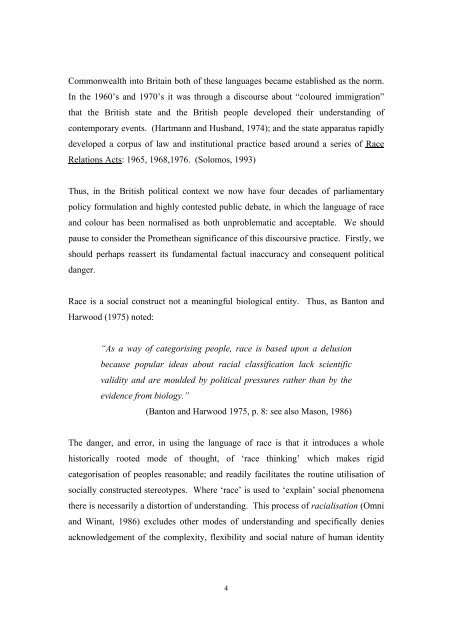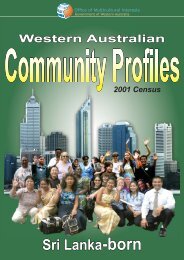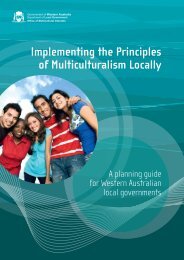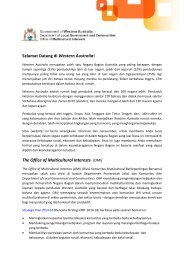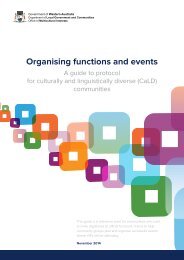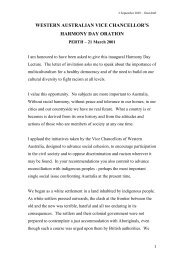Doing good by stealth, whilst flirting with racism - Office of ...
Doing good by stealth, whilst flirting with racism - Office of ...
Doing good by stealth, whilst flirting with racism - Office of ...
You also want an ePaper? Increase the reach of your titles
YUMPU automatically turns print PDFs into web optimized ePapers that Google loves.
Commonwealth into Britain both <strong>of</strong> these languages became established as the norm.<br />
In the 1960’s and 1970’s it was through a discourse about “coloured immigration”<br />
that the British state and the British people developed their understanding <strong>of</strong><br />
contemporary events. (Hartmann and Husband, 1974); and the state apparatus rapidly<br />
developed a corpus <strong>of</strong> law and institutional practice based around a series <strong>of</strong> Race<br />
Relations Acts: 1965, 1968,1976. (Solomos, 1993)<br />
Thus, in the British political context we now have four decades <strong>of</strong> parliamentary<br />
policy formulation and highly contested public debate, in which the language <strong>of</strong> race<br />
and colour has been normalised as both unproblematic and acceptable. We should<br />
pause to consider the Promethean significance <strong>of</strong> this discoursive practice. Firstly, we<br />
should perhaps reassert its fundamental factual inaccuracy and consequent political<br />
danger.<br />
Race is a social construct not a meaningful biological entity. Thus, as Banton and<br />
Harwood (1975) noted:<br />
“As a way <strong>of</strong> categorising people, race is based upon a delusion<br />
because popular ideas about racial classification lack scientific<br />
validity and are moulded <strong>by</strong> political pressures rather than <strong>by</strong> the<br />
evidence from biology.”<br />
(Banton and Harwood 1975, p. 8: see also Mason, 1986)<br />
The danger, and error, in using the language <strong>of</strong> race is that it introduces a whole<br />
historically rooted mode <strong>of</strong> thought, <strong>of</strong> ‘race thinking’ which makes rigid<br />
categorisation <strong>of</strong> peoples reasonable; and readily facilitates the routine utilisation <strong>of</strong><br />
socially constructed stereotypes. Where ‘race’ is used to ‘explain’ social phenomena<br />
there is necessarily a distortion <strong>of</strong> understanding. This process <strong>of</strong> racialisation (Omni<br />
and Winant, 1986) excludes other modes <strong>of</strong> understanding and specifically denies<br />
acknowledgement <strong>of</strong> the complexity, flexibility and social nature <strong>of</strong> human identity<br />
4


